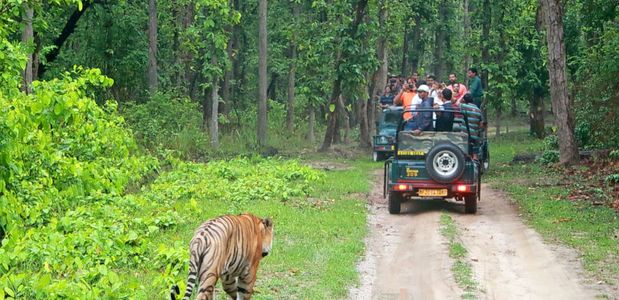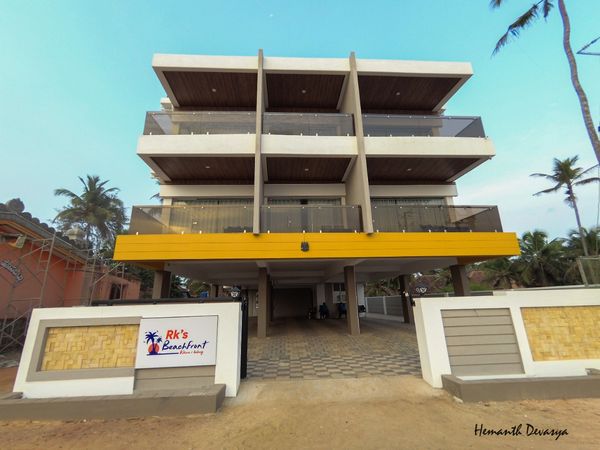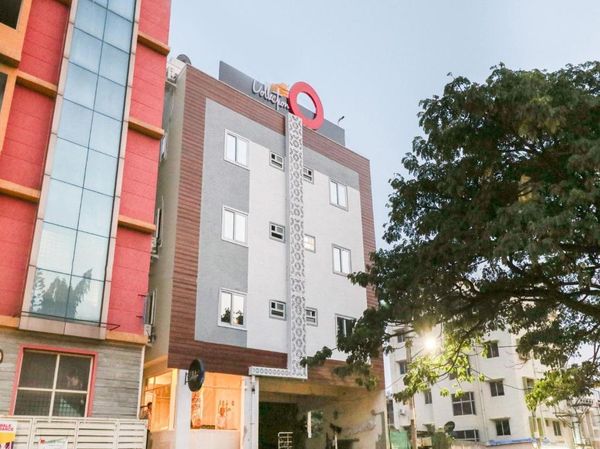Wild Wonders of Wild at Heart: Exploring the Untamed Beauty of Bandipur National Park
 Palakshi Meharwal
14 May, 2025
8 mins read
22
Palakshi Meharwal
14 May, 2025
8 mins read
22

Nestled in the verdant foothills of the Western Ghats, Bandipur National Park stands as one of India's most remarkable biodiversity hotspots. Covering over 870 square kilometers in Karnataka’s Chamarajanagar district, this protected area forms part of the Nilgiri Biosphere Reserve—a UNESCO-designated region that also includes the adjoining Nagarahole, Mudumalai, and Wayanad sanctuaries. Bandipur's mosaic of dry deciduous forests, grassy woodlands, and gentle hills provides a haven for a wide array of wildlife species and serves as a pivotal corridor for the movement of large mammals such as elephants and tigers.
A Rich History Rooted in Conservation
Bandipur was initially established in 1931 as the Venugopala Wildlife Park by the Maharaja of Mysore and later designated a national park in 1974 under Project Tiger—an initiative launched by the Government of India to conserve the dwindling tiger population. The park's historic association with royal hunting grounds lends it a cultural backdrop that contrasts with its modern-day identity as a bastion of wildlife protection.
Faunal Diversity: The Soul of Bandipur
What makes Bandipur a truly wild wonder is its rich faunal diversity. The park is home to over 200 species of birds, 30 species of mammals, and numerous amphibians and reptiles. Iconic residents include:
- Bengal Tigers: Although elusive, Bandipur's tigers are a significant draw for wildlife enthusiasts. Conservation measures have helped maintain a steady population in recent years.
- Asiatic Elephants: Herds of elephants are commonly sighted during safaris, especially around waterholes and forest clearings.
- Indian Gaur: The largest bovine species in the world, these muscular animals often graze in open meadows.
- Leopards, dholes (Indian wild dogs), sloth bears, and striped hyenas also inhabit this rugged terrain.
Birdwatchers can delight in spotting species such as the Malabar pied hornbill, crested serpent eagle, and the colorful Indian pitta.
A Living Lab of Ecology
Bandipur’s landscape serves as a critical ecological laboratory where naturalists and scientists study the intricate interdependencies between flora, fauna, and the environment. The park’s vegetation predominantly features dry deciduous forests with teak, sandalwood, Indian gooseberry, and bamboo groves dominating the canopy. Seasonal variations—from dry summers to monsoon rejuvenation—create dynamic conditions that influence animal behavior, breeding cycles, and plant growth.
Eco-Tourism and Responsible Travel
Tourism in Bandipur National Park is carefully regulated to maintain the balance between human interaction and ecological preservation. Jeep safaris and van tours, organized by the Karnataka Forest Department, offer visitors the opportunity to experience the wild from the safety of guided expeditions. These outings are timed to minimize disturbance to wildlife while maximizing sightings.
Sustainable tourism initiatives have led to the development of eco-lodges and community-driven programs that support local livelihoods without compromising conservation goals. Visitors are encouraged to adopt responsible travel practices—such as avoiding plastic, maintaining silence during safaris, and refraining from feeding animals.
When to Visit: Seasons of Spectacle
Bandipur can be visited year-round, but the ideal time depends on what you hope to experience:
- October to March: Pleasant weather and better chances of spotting large mammals, especially during early mornings and late afternoons.
- April to June: The dry season makes wildlife viewing easier as animals gather near dwindling water sources.
- July to September: The monsoon transforms the park into a lush paradise, though sightings may be less frequent due to dense foliage.
Connecting the Dots: Bandipur’s Regional Importance
One of Bandipur’s defining features is its strategic location. It acts as a bridge between the Western and Eastern Ghats, facilitating genetic flow among wildlife populations. This connectivity is vital for long-term species survival. Its proximity to major cities like Mysore (80 km) and Bangalore (220 km) makes it a popular yet manageable destination for nature enthusiasts.
Threats and Challenges
Despite the park's relative success, it faces persistent threats such as human-wildlife conflict, poaching, habitat encroachment, and the growing menace of forest fires. The National Tiger Conservation Authority (NTCA) and other bodies continuously monitor these challenges and implement mitigation strategies. Additionally, the presence of highways cutting through the reserve poses risks of roadkill and fragmentation of animal territories—a matter that has drawn attention from conservationists and policymakers alike.
How to Reach Bandipur
- By Air: The nearest airport is Mysore, followed by Bangalore International Airport for more extensive connectivity.
- By Train: Mysore Junction is the closest major railway station.
- By Road: Regular bus and taxi services connect Bandipur with nearby cities, and the scenic drive through the forest is a journey in itself.
Tips for Visitors
- Book safaris in advance through the Karnataka EcoTourism portal or at the park's reception centers.
- Dress in earthy tones to blend in with the environment.
- Carry binoculars, water, and basic first aid during safaris.
- Avoid loud noises, flash photography, and sudden movements.
Conclusion: A Call to the Wild
Bandipur National Park is more than just a tourist destination—it is a living, breathing ecosystem that embodies the spirit of the wild. Exploring its untamed beauty offers not just a chance to encounter majestic animals but also a deeper understanding of our role in preserving these last frontiers of wilderness. As responsible travelers and informed citizens, we must champion efforts that balance human development with ecological integrity.
Written By:
Palakshi Meharwal



Hotels at your convenience
Now choose your stay according to your preference. From finding a place for your dream destination or a mere weekend getaway to business accommodations or brief stay, we have got you covered. Explore hotels as per your mood.





